Schlepping and Schmoozing Along the Interstate 5, Chapter 18, Exit 13B (National Avenue/28th Street): General Dynamics/ NASSCO
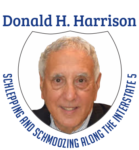
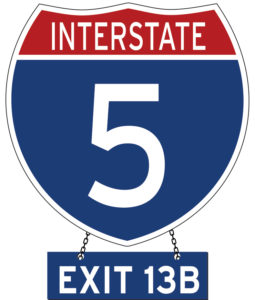 From National Avenue/ 28th Street exit turn left on National Avenue and left again on 28th Street, follow 28th Street across Harbor Drive to entrance of General Dynamics/NASSCO at 2798 Harbor Drive, San Diego.
From National Avenue/ 28th Street exit turn left on National Avenue and left again on 28th Street, follow 28th Street across Harbor Drive to entrance of General Dynamics/NASSCO at 2798 Harbor Drive, San Diego.
A few chapters earlier, at Naval Base San Diego, we learned of the USS Gabrielle Giffords, which was named for a former Jewish member of Congress. Another Jewish political figure, Harvey Bernard Milk, was honored on Shabbat, Nov. 6, 2021, with the “christening” of a ship named the USNS Harvey Milk. The difference in initials preceding the ship names is because those ships designated “USS” are staffed by officers and enlisted personnel of the United States Navy. On the other hand, those designated “USNS” provide services to the Navy but are unarmed and staffed by civilian personnel.
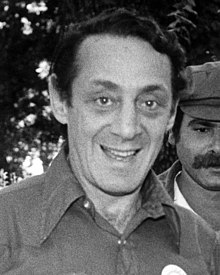
(Photo: Wikipedia)
Harvey Milk won fame as California’s first openly gay elected official and as a member of the San Francisco Board of Supervisors. He was assassinated at age 48 in 1978 along with Mayor George Moscone by fellow Supervisor Dan White.
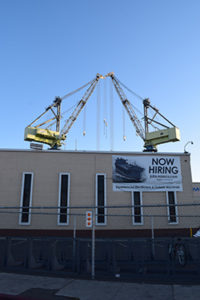
December 13, 2019 marked the beginning of the construction of the Harvey Milk at General Dynamics NASSCO, with a launch date scheduled for November 6, 2021. The NASSCO acronym stands for its predecessor company, the National Steel and Shipbuilding Company. That company started in 1905 as the California Iron Works and was renamed the National Iron Works in 1922 by its new owner U.S. National Bank. In 1949, five years after the company moved to 28th Street and Harbor Drive, it was renamed again as the National Steel and Shipbuilding Company. NASSCO was purchased in 1998 for $415 million by General Dynamics, becoming GD’s third shipyard. The others are in Norfolk, Virginia and Mayport, Florida.
The Harvey Milk is a replenishment oiler, the second in a class of ships named for the late Democratic Congressman John Lewis, who was a civil rights leader. As Lewis helped advance the rights of African-Americans so too was Milk credited with advancing the rights of gay people. Other oilers in the John Lewis class of ships will be named for the late Supreme Court Chief Justice (and California governor) Earl Warren; slain former U.S. Attorney General Robert F. Kennedy; U.S. Supreme Court Justice Ruth Bader Ginsburg, and women’s rights activists Lucy Stone and Sojourner Truth. All honorees helped to advance civil rights in America.

The “christening” ceremony featured a principal ceremonial address by Milk’s nephew, Stuart Milk, as well as remarks by Navy Secretary Carlos Del Toro; Vice Admiral Jeffrey Hughes, deputy chief of naval operations for warfighting development; and Rear Adm. Michael Wettlaufer, commander of the Military Sealift Command. Sponsors of the ship were U.S. Sen. Dianne Feinstein, who had served on the San Francisco Board of Supervisors with Milk, and Paula Neira, clinical program director of the Johns Hopkins Center for Transgender Health. Neira shattered a bottle of sparkling wine across the ship’s bow in a time-honored Navy tradition.
Stuart Milk commented at the ceremony that a 15-year-old gay boy named Khalil had been contemplating suicide in Kuwait, afraid that as a homosexual he would be rejected by his family and possibly become the victim of an honor killing. The boy learned in 2016 of the Navy’s announcement that a ship would be named in Harvey Milk’s honor and wrote to the Harvey Milk Foundation that he had put aside his plan of suicide and “I think I have a future.” The Foundation has remained in touch with the young man, who “is safe {and] hopeful,” Stuart Milk said.
Navy Secretary Carlos Del Toro commented after the ceremony to Times of San Diego that naming the ship for Milk “sends a message to all of our LGBT (Lesbian, Gay, Bisexual, Transexual) community and to all Americans that the Department of the Navy is a very welcoming community for all Americans who want to serve our country in uniform and civilians in the department as well too.”
San Diego’s Mayor Todd Gloria, a member of the LGBTQIA (Lesbian, Gay, Bisexual, Transexual, Queer, Intersex, Asexual) community, said: “This is a day many of us could never have dreamed of happening. I have no doubt that there are sailors all around the globe who heard those comments, and they were so powerful, and they were made possible by Harvey Milk many decades after his assassination, continuing to bring people hope who need it.”
The decision to name a ship for Milk came in the wake of the repeal of the U.S. Military’s “Don’t Ask, Don’t Tell” policy concerning homosexuality, and the subsequent mobilization of gay leadership, particularly in San Diego and San Francisco. Although San Francisco has a better-known gay community, San Diego, in fact, has been a trail blazer in getting members of the LGBTQIA community elected to office, especially from districts based in the Hillcrest neighborhood, the center of the LGBTQIA community.
Christine Kehoe started the trend with her election to the San Diego City Council; she went on to become a state Assemblywoman and a State Senator. In her wake, her political aide Toni Atkins was elected to the same three positions. Atkins also was chosen by her colleagues as Assembly Speaker and later as the State Senate President pro tempore, in both cases a first for a lesbian legislator. Behind Toni Atkins was Todd Gloria, who served as a city councilman, and then as a California Assemblyman before winning election as San Diego’s first gay mayor. Succeeding Gloria in the Assembly seat was City Councilman Chris Ward, and succeeding Ward as a councilman was Stephen Whitburn, both members of the LGBTQIA community.
The San Diego City Council has seen other members of the community elected from districts other than the 3rd, among them former City Council Presidents Georgette Gomez (9th District) and Dr. Jennifer Campbell (2nd District). Another was Carl DeMaio (5th District), who since has gone on to become a conservative radio commentator. Bonnie Dumanis, a former San Diego County District Attorney, also is a member of the LGBTQIA community. Campbell, a Democrat, and Dumanis, a Republican, also are members of the Jewish community.
Milk was born May 22, 1930 in the hamlet of Woodmere, New York, to William Milk and Minerva Karns Milk, Jews of Lithuanian parentage. Paternal grandfather Morris Milk, owner of a department store, was credited with founding the first synagogue in that portion of Long Island. Harvey graduated from Bay Shore High School on Long Island and went on to receive a bachelor’s degree in mathematics from the teachers’ college that became the State University of New York at Albany.
Prior to living in San Francisco and advocating for gay rights, Milk had served as a dive officer in the U.S. Navy and was stationed on the submarine rescue ship Kittiwake, named after a type of sea gull. In an era when homosexuality was illegal, Milk chose to be honorably discharged from the Navy as a lieutenant (junior grade) after he was discovered frequenting a spot in San Diego’s Balboa Park where gay men had clandestine meetings.
Afterwards, he lived and worked in New York City but in 1969, he and a companion moved to San Francisco, where Milk obtained a job in an investment firm and the companion returned to New York to pursue a theater career. Fired from his job for refusing to cut his hair, Milk tried his hand at backstage theatre positions in New York, but eventually returned to San Francisco with another companion. They opened a Castro Street camera store together. In response to a police crackdown ordered by Mayor Joseph Alioto on men engaging in oral sex, Milk became involved with the Society for Individual Rights (SIR), which fathered the Alice B. Toklas Memorial Democratic Club. When he decided to run for the position of Supervisor, some of the “Alice Club” considered him an “upstart,” resulting in an ongoing feud between Milk and the club.
Not only gay issues but also small business concerns about over-regulation by government prompted his entry into politics. Owners of gay bars appreciated Milk’s concern for businesses and endorsed him. But in the at-large election of 1973, he came in only 10th of 32 candidates, even though he did very well in his own Castro district. He became informally known as the “Mayor of Castro Street” in the heart of San Francisco’s gay community and was credited with forging an alliance between organized labor and the proprietors of gay bars. In 1975, he ran again for supervisor, presenting himself in a more conservative persona. He cut his hair, swore off marijuana, and made a point of refusing to visit gay bath houses. In that election, he came in seventh place for the six open seats.
In 1976, a year after George Moscone was elected mayor, Milk was appointed to the city’s Board of Permit Appeals, thereby winning him fame as the first openly gay city commissioner anywhere in the United States. Five weeks after he took office, Milk announced he would run for the California State Assembly. This prompted Moscone to fire him, as he had previously declared that people who sit on city commissions should recuse themselves from elective politics. Moscone earlier had supported Art Agnos for the Assembly position. Milk declared himself a candidate against San Francisco’s political machine and lost the election, but only narrowly. In the wake of the election, he formed the San Francisco Gay Democratic Club. Providentially, San Francisco decided that same year to elect supervisors by districts instead of at large.
In November 1977, Milk’s quest to become an elected official finally was realized. He came in first of 17 candidates in the open district election. His swearing-in was another first for openly gay men – previously he had been the first to hold appointed office; this time he was the first to hold elective office. Notwithstanding his previous disputes with Moscone, Milk quickly allied himself with the mayor. But he and fellow supervisor Dan White soon were at odds. White, angered that Milk didn’t support him on keeping a mental health facility for troubled adolescents out of his district, retaliated by routinely opposing all legislation supported by Milk. One such bill outlawed discrimination against homosexuals; White voted no, and Moscone signed it at a well-publicized event. Milk won popular support from gays and straights alike for his bill requiring dog owners to clean up their messes with “pooper-scoopers” on public property.
In 1978, State Sen. John Briggs sponsored a proposed initiative to fire gay teachers as well as any school employees who championed gay rights. Milk debated him numerous times, often using ridicule to deflate the conservative Republican. The anti-gay proposition was rejected by a spectrum of politicians ranging from California’s former Republican governor (and future U.S. President) Ronald Reagan, as well as by such Democrats as President Jimmy Carter and California’s then-Governor Jerry Brown. Californians overwhelmingly rejected the ballot measure.
On November 27, 1978, White assassinated both Moscone and Milk. Previously, he had resigned his seat in protest of a low salary, and then, in a change of mind, asked Moscone to reappoint him. However, other supervisors persuaded Moscone that appointing someone else, perhaps reflecting San Francisco’s ethnic diversity, would be better. White crawled through a basement window of City Hall to avoid detection, killed Moscone first with multiple shots, then went to Milk and did the same. Funeral services for Milk were held both at Temple Emanu-El and at the Opera House, and Moscone was mourned at St. Mary’s Cathedral. Milk was cremated, with some of his ashes scattered on San Francisco Bay and some buried at 575 Castro Street, where his camera store had been located. Moscone was succeeded as mayor by Dianne Feinstein, who later was elected as a United States Senator.
White, whose lawyers argued “diminished capacity,” was sentenced to seven and two-thirds years in prison after being found guilty of voluntary manslaughter. Following the controversial verdict in the Moscone-Milk homicides, a riot ensued in what became known as the White Night riots. White was released from prison in 1984, and the following year he was found in a carbon-monoxide-filled car, dead by suicide.
San Diego’s gay community, led by Nicole Murray-Ramirez (subsequently known as Empress Nicole the Great and the Queen Mother of the Americas in the North American LGBTQIA community’s Imperial Court System) mobilized to memorialize Milk, with whom he had advocated for LGBTQIA causes. In 1979, Ramirez created the Harvey Milk Civil Rights Award, and later founded the Harvey Milk Democratic Club of San Diego County. A memorial bench was dedicated to Milk in Balboa Park, and with the backing of San Diego City Councilman Todd Gloria (who years later was elected as San Diego’s mayor). Blaine Avenue in the Hillcrest neighborhood was renamed in 2012 as Harvey Milk Street, the first street in the nation to honor Milk. Ramirez subsequently mobilized a campaign to successfully persuade the U.S. Post Office to issue a postage stamp in Milk’s honor, which was done at a 2014 White House ceremony. Once again, Milk was the first gay man so honored.
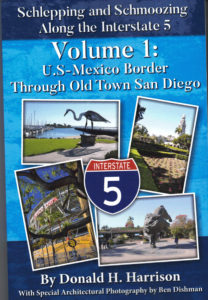 Milk also was memorialized at the San Francisco International Airport, where Terminal 1 was renamed as the Harvey Milk Terminal 1. Market and Castro Streets is the location of Harvey Milk Plaza in San Francisco. The Harvey Milk Lesbian, Gay, Bisexual, Transgender (LGBT) Democratic Club replaced the San Francisco Gay Democratic Club. In New York City, the Harvey Milk High School educates at risk LGBTQIA youth. In Portland, Oregon, 13 blocks of Stark Street were renamed as Harvey Milk Street. President Barack Obama posthumously awarded Milk the Presidential Medal of Freedom. California Gov. Arnold Schwarzenegger designated May 22, the day of Milk’s birth, as Harvey Milk Day. Paris, France, named a square Place Harvey Milk.
Milk also was memorialized at the San Francisco International Airport, where Terminal 1 was renamed as the Harvey Milk Terminal 1. Market and Castro Streets is the location of Harvey Milk Plaza in San Francisco. The Harvey Milk Lesbian, Gay, Bisexual, Transgender (LGBT) Democratic Club replaced the San Francisco Gay Democratic Club. In New York City, the Harvey Milk High School educates at risk LGBTQIA youth. In Portland, Oregon, 13 blocks of Stark Street were renamed as Harvey Milk Street. President Barack Obama posthumously awarded Milk the Presidential Medal of Freedom. California Gov. Arnold Schwarzenegger designated May 22, the day of Milk’s birth, as Harvey Milk Day. Paris, France, named a square Place Harvey Milk.
*
Next Sunday, May 8, 2022: Exit 14B (Cesar Chavez Parkway): Chicano Park.
This story is copyrighted (c) 2022 by Donald H. Harrison, editor emeritus of San Diego Jewish World. It is a serialization of his book Schlepping and Schmoozing Along Interstate 5, Volume 1, available on Amazon. Harrison may be contacted via donald.harrison@sdjewishworld.com